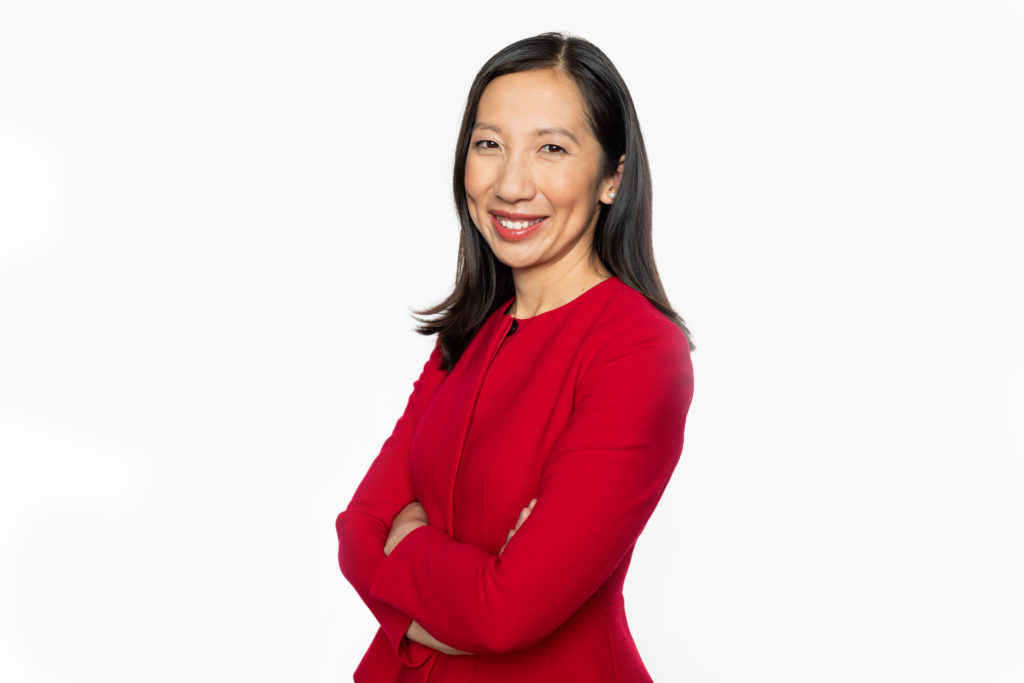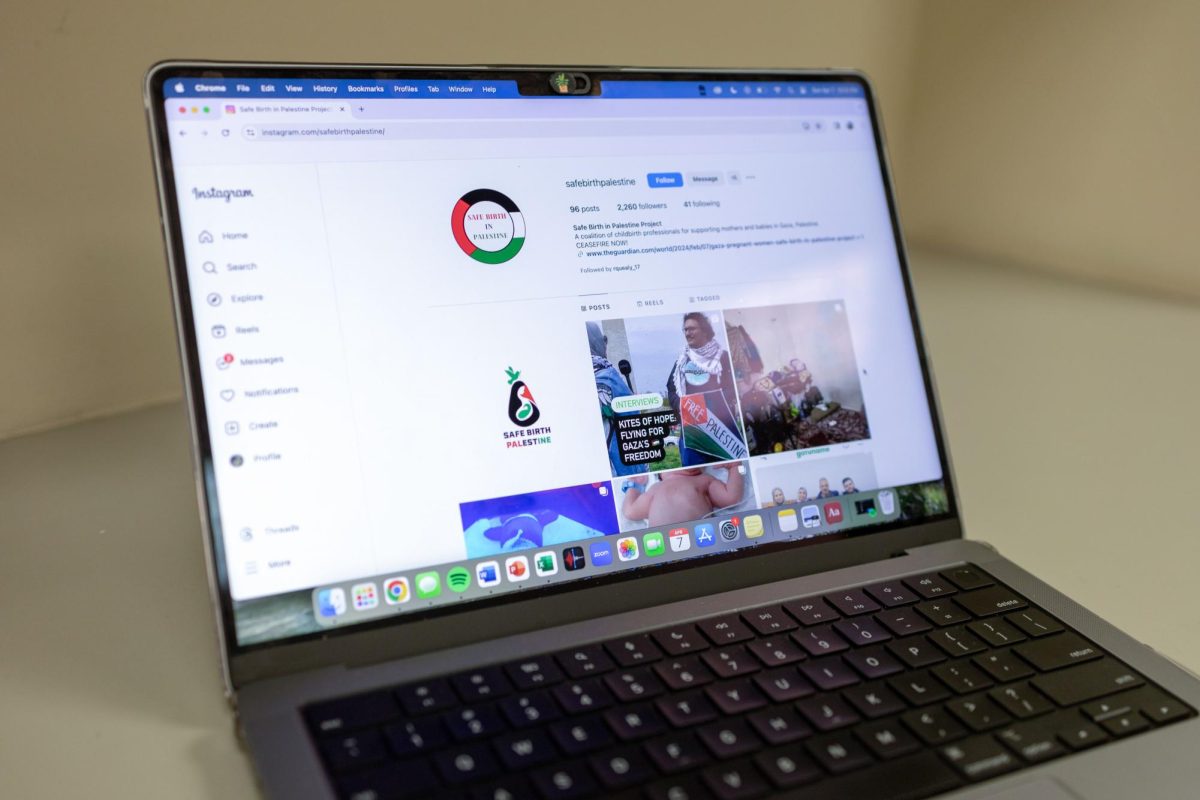As the pandemic drags on, GW’s COVID-19 experts are fighting against another malady: misinformation.
Since the pandemic began, faculty from across the University have spent hours speaking with media outlets to share their expertise about science, medicine and the social sciences. In interviews, five faculty members said they feel a responsibility to share their knowledge with the public to ensure people are receiving proper guidance and hearing from a range of racially and ethnically diverse voices.
Leana Wen, a visiting professor of health policy and management and a former Baltimore health commissioner, has served as a contributing columnist for The Washington Post and an on-air medical analyst for CNN throughout the pandemic. Wen said spreading reliable information to the American public is not merely tangential to her work as a public health expert but rather a core part of her fight against the virus.
“If I’m working on one aspect of it, then media is embedded in that aspect as well,” she said. “If what I’m doing is working on disparities, then I’m working on the legislative aspect, I might be informally advising local and state health departments, I might also be raising attention to this issue through the media, I might be writing papers about it, so it’s all together.”
Wen said her mentor, former Sen. Barbara Mikulski, D-Md., has always encouraged her to find problems that she can address with her specific skill set – advice Wen has used in her approach to COVID-19.
“I always look at, ‘What are those specific needs?’ and then, ‘Are those specific needs met by other people at this time?’ or, ‘Is there a particular role that I should be trying to fill in and help at this moment?’” she said.
Researchers from the National Bureau of Economic Research discovered that COVID-19 outbreaks tended to be worse in areas where TV programming downplayed the virus’s severity. Some studies have shown that the increase in polarization across social media outlets coincides with an increase in the spread of misinformation.
Jon Andrus, an adjunct professor of global health, said he felt a similar need to help others during the pandemic and has been speaking with media outlets, like Newsweek and Healthline, about the spread of the virus and the development and distribution of the COVID-19 vaccines. He said he typically gives one to two interviews per week and extensively researches the topic he’ll be speaking about ahead of time.
“It’s been an honor and a privilege, but it’s everybody’s duty to use the skill set that they have to try to make a difference in the world,” Andrus said.
Andrus said he gained an understanding of disease control during his time working on the eradication of other diseases abroad with the Pan American Health Organization. He said his experience working to distribute yellow fever vaccines in Paraguay has helped him put America’s COVID-19 shortcomings into perspective.
“We mobilized, through vaccine diplomacy, enough doses for the country to vaccinate, I think 3 million people in a few weeks,” Andrus said. “A few weeks! So it saddens me to see what’s going on in the United States with COVID. So when I was interviewed on Tuesday, I could share one of those experiences, and say, ‘We just are not fit for purpose.’ So I try to bring my own perspective. And I say up front, ‘This is my perspective.’”
Physics professor Neil Johnson has been speaking to news outlets about his research on how vaccine misinformation spreads on social media. He said the topic might seem like a media studies or social sciences problem, but he approached his research through the lens of physics, focusing not on individual videos or conspiracies but rather on patterns within social media systems that lead to misinformation.
He said the spread of misinformation on social media is typically a matter of how many contacts the people spreading misinformation have in a given amount of time.
“I know nothing about standard public health in the real world where people turn up for their appointments and this kind of thing,” Johnson said. “But what I do is I’m used to thinking of abstract systems that have lots of connections between them where you don’t really know where the connections are, and when you look at it, it’s almost, ‘Where do I even start understanding it?’”
He said he applies the methods he would use when studying physics to analyze what guides human behavior on social media.
“For example, the way I look at the online misinformation is pretty much like the way mathematical modeling people look at the actual virus passing through the population,” Johnson said. “It has to do with contacts, the number of contacts per unit time and then what communities people join and then what other communities they join? And are they passing it on?”
Carlos Rodríguez-Díaz, an associate professor of prevention and community health, has spent the last several months explaining the disproportionate toll of the pandemic on Black and Latino communities.
“COVID is unfortunately giving us the opportunity to see how our social determinants shape our ability to stay healthy,” Rodríguez-Díaz said. “I am committed to have a conversation and to help others understand that this is not about the virus. This is about people. It’s our social condition that increases risk for infection and disease progression. So that’s the scientific work that I do.”
Rodríguez-Díaz said he’s shared his expertise with the Latino community by speaking with predominantly Spanish-speaking media outlets.
“There are not too many Spanish-speaking scientists who are available to speak to the media – not as many as English-speaking, definitely,” Rodríguez-Díaz said. “I believe that it is very important to engage with Spanish-speaking media and media targeting Latino and Hispanic populations in the United States. Representation in media matters.”
Candice Chen, an associate professor of health policy and management, said as a public health expert, she also appreciates the role that journalists play in making complex public health information more clear to the public. She said she appreciates when reporters can clarify and condense the academic language she uses to speak about COVID-19.
“I’m always very thankful for media reporters, because I know, sometimes I speak in – and I try not to – but I speak in that academic speak, right?” Chen said. “And they take what we do, and they turn it into something that is hopefully understandable to normal people.”
Lia DeGroot contributed reporting.








